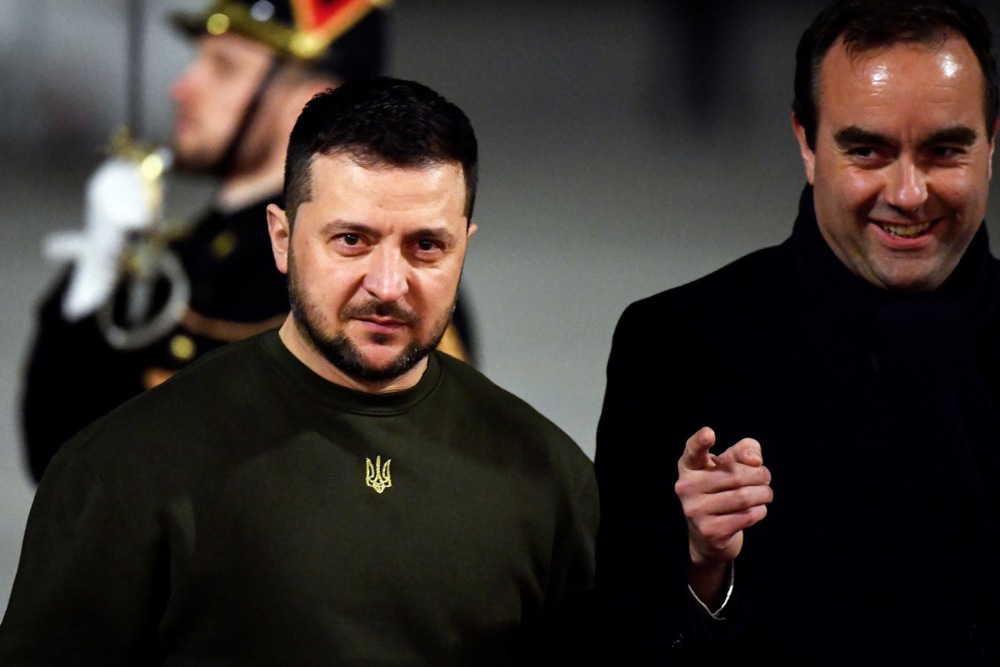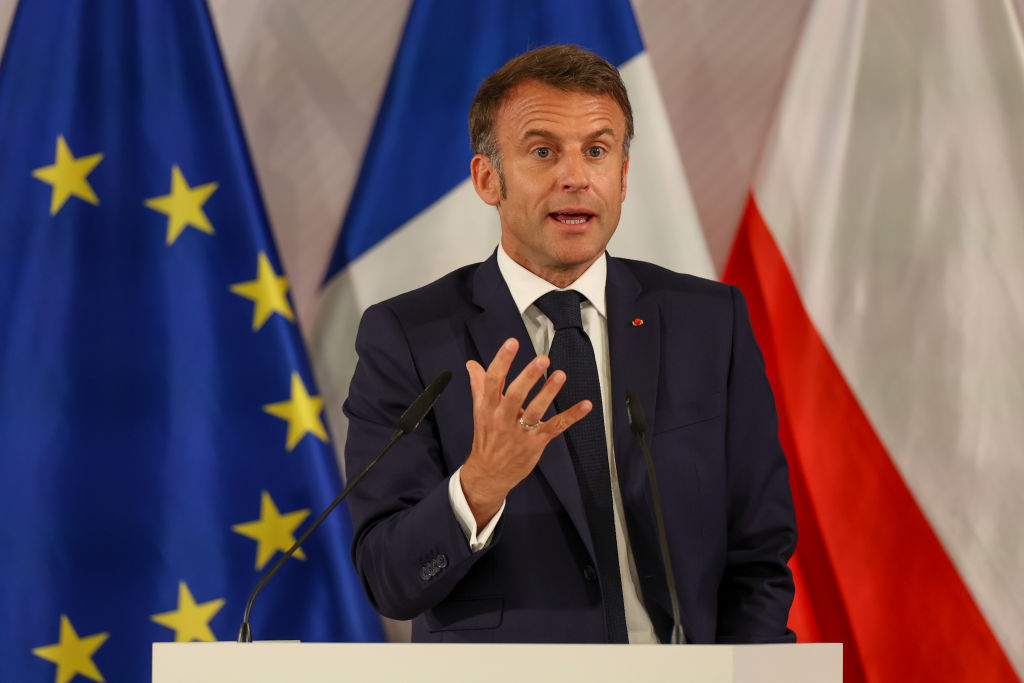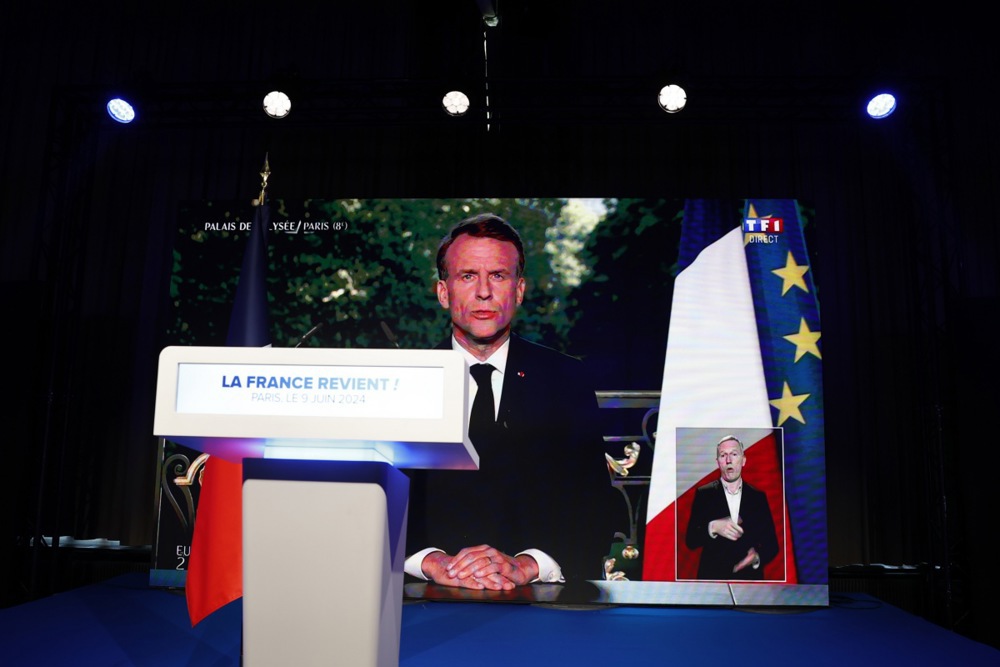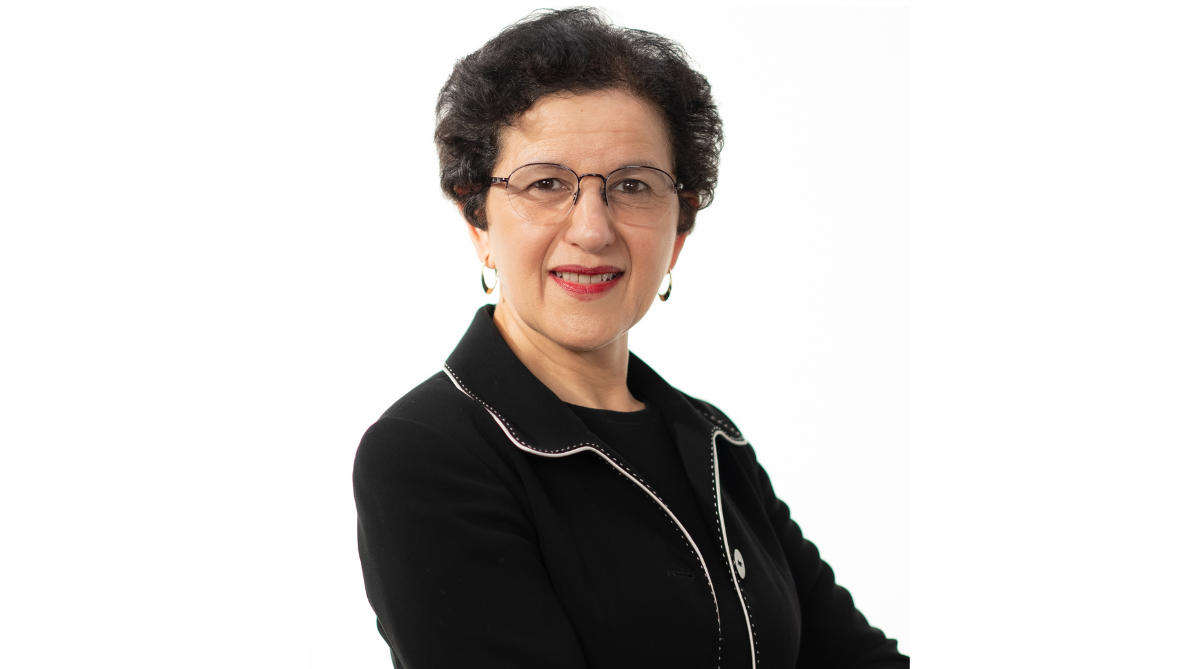Marine le Pen, de facto leader of France’s hard-right party National Rally (RN), said President Emmanuel Macron would no longer be the sole decision-maker on France’s strategic and military position should her party win the upcoming general election.
Le Pen was speaking in an interview published by the online outlet Télégramme on June 27 regarding possible outcomes of an RN victory in the vote on June 30 and July 7.
She said that if party President Jordan Bardella became Prime Minister, he would have the upper hand on diplomatic and military issues.
“Jordan has no intention of picking a quarrel with him [Macron], but he has drawn some red lines. On Ukraine, the President will not be able to send troops,” she said.
“For the President, Chief of the Armed Forces is an honorary title, since it’s the Prime Minister who holds the purse strings,” le Pen added.
National Rally leader Marine Le Pen and Italian Foreign Minister Antonio Tajani have criticized Emmanuel Macron’s proposal for Ukrainian strikes on mainland Russia. https://t.co/HbO9QWmOzf
— Brussels Signal (@brusselssignal) May 30, 2024
On June 24, Bardella detailed where an RN-led government’s support for Ukraine would stop.
“While I’m in favour of continuing to support Ukraine with logistics and defence equipment, my red line remains long-range missiles or any military equipment that could lead to escalation, by which I mean anything that could directly hit Russian cities,” he said.
To counter opposition accusations of him of being too soft on Russia, he added: “I see Russia as a multi-dimensional threat to both France and Europe.”
Nevertheless, Bardella’s stance on Ukraine represented what would be a major shift in France’s military aid to Kyiv.
In the past couple of months, Macron has said he may send French troops to Ukraine. He also promised warplanes and called for European countries to deploy military personnel in Ukraine to train its military forces.
The President also favoured using Western weapons against mainland Russia.
Ukraine should be allowed to use donated Western weapons to “neutralise” mainland Russian military installations, French President Emmanuel Macron said. https://t.co/TwQWqW1GQh
— Brussels Signal (@brusselssignal) May 30, 2024
While Macron would remain in charge of defence and foreign policy even with the RN in power, he would need parliament’s backing to finance any aid to Ukraine in the next budget due in autumn.
The RN could also block or delay any future weapons transfers because they need approval from the prime minister and the parliament.
In that scenario, the security guarantee pact with Ukraine in March 2024 could be under threat.
Paris said it would provide up to €3 billion in military aid to Ukraine this year, although that has not yet been ratified by parliament.
With just three days to go before the first round of the national vote, the RN has been generally topping the polls, leading many to expect deadlock or an RN coalition.
With no clear majority, the French National Assembly would be split between the current three main blocs. The hard-right led by the RN and allies look set to have the most seats, followed by the Nouveau Front Populaire (New Popular Front), which has brought together almost all parties on the Left, and Macron’s loose centrist coalition in third place.
Under an RN-led coalition, Macron would have little choice but to appoint Bardella as prime minister.
Ukraine President Volodymyr Zelensky has said he believed that the next French Government would back Ukraine. “We believe that the French will continue to support Ukraine regardless of the political situation,” he told news agency AFP on June 27.
“We are confident that the next government will be independent from the Russian aggressor and will remain true to European values and a strong and united Europe,” he said.
Bardella has stated the RN’s strategy was to avoid “any form of escalation in the face of Russia – which is a nuclear power”.





